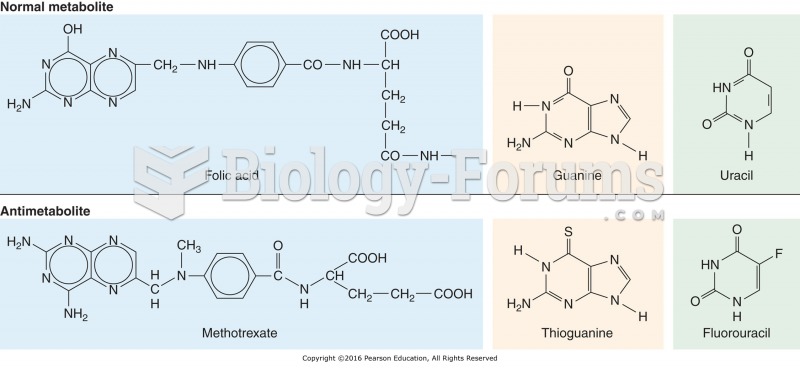|
|
|
More than 50% of American adults have oral herpes, which is commonly known as "cold sores" or "fever blisters." The herpes virus can be active on the skin surface without showing any signs or causing any symptoms.
The most common treatment options for addiction include psychotherapy, support groups, and individual counseling.
The calories found in one piece of cherry cheesecake could light a 60-watt light bulb for 1.5 hours.
Asthma-like symptoms were first recorded about 3,500 years ago in Egypt. The first manuscript specifically written about asthma was in the year 1190, describing a condition characterized by sudden breathlessness. The treatments listed in this manuscript include chicken soup, herbs, and sexual abstinence.
For pediatric patients, intravenous fluids are the most commonly cited products involved in medication errors that are reported to the USP.







